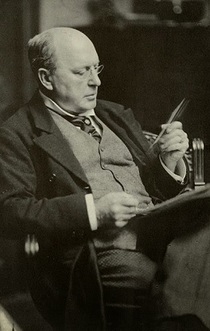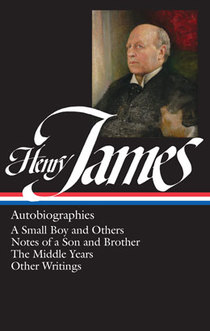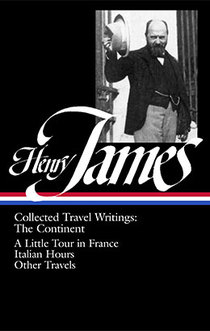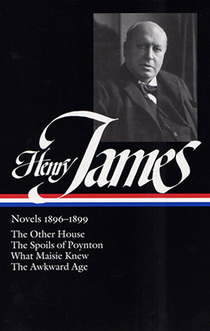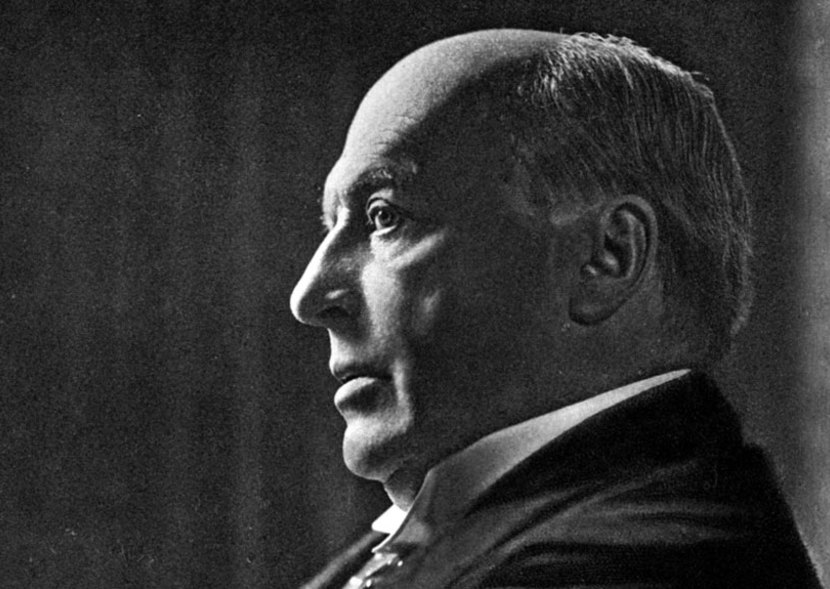
Major works:
The American • “Daisy Miller” • Washington Square • The Portrait of a Lady • The Bostonians • “The Turn of the Screw” • What Maisie Knew • The Wings of the Dove • The Ambassadors • The Golden Bowl
In his memoir A Small Boy and Others (1913) Henry James recalls himself as a child in the New York of the early 1850s—“I at any rate watch the small boy dawdle and gape again, I smell the cold dusty paint and iron as the rails of the Eighteenth Street corner rub his contemplative nose”—and finds in the memory of that moment “the very pattern and measure of all he was to demand: just to be somewhere—almost anywhere would do—and somehow receive an impression or an accession, feel a relation or a vibration.” Those relations and vibrations, expressed with analytical brilliance and limitless sensitivity to emotional nuance, would inform a life’s work of heroic proportions, the novels and stories, memoirs and travel books and criticism in which he uncovered new dimensions in the art of fiction and brought fresh illumination to the subject that preoccupied him, the uneasy and ambiguous rapport between European and American culture.
“I do not think that anybody has yet done full justice to his genius as an international critic of manners, esthetic values and morals. The strength of that impartial intelligence of which his hesitating and teasing ambiguity sometimes represented a weakness had prompted him to find his bearings among social gravitational fields which must at the time have seemed almost as bewildering as the astronomical ones with which the physics of relatively were just beginning to deal. It had fortified him to meet and weather the indifference or ridicule of both the two English-speaking peoples to whom he had addressed himself and whose historian he has trained himself to be; and it had stimulated him, through more than half a hundred books, a long life of unwearying labor, to keep recreating himself as an artist and even to break new ground at seventy.”
—Edmund Wilson
“I have visited some literatures of the East and West; I have compiled an encyclopedic anthology of fantastic literature; I have translated Kafka, Melville, and Bloy; I know of no stranger work than that of Henry James.”
—Jorge Luis Borges
“James’s critical genius comes out most tellingly in his mastery over, his baffling escape from, Ideas; a mastery and an escape which are perhaps the last test of a superior intelligence. He had a mind so fine that no idea could violate it.”
—T. S. Eliot
A Small Boy and Others
Henry JamesWhat I look back to as my infant license can only have had for its ground some timely conviction on the part of my elders that the only form of riot or revel known to me would be that of the visiting mind. Wasn’t I myself for that matter even at that time all acutely and yet resignedly, even quite fatalistically, aware of what to think of this? I at any rate watch the small boy dawdle and gape again, I smell the cold dusty paint and iron as the rails of the Eighteenth Street corner rub his contemplative nose, and, feeling him foredoomed, withhold from him no grain of my sympathy. He is a convenient little image or warning of all that was to be for him, and he might well have been even happier than he was. For there was the very pattern and measure of all he was to demand: just to be somewhere—almost anywhere would do—and somehow receive an impression or accession, feel a relation or vibration.
